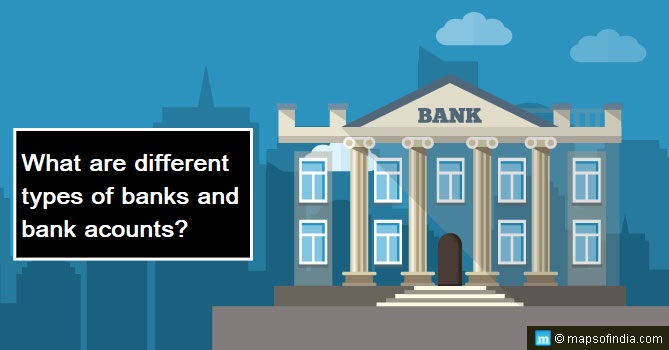Banking is a financial industry that manages transfer, credit facilities, storage for cash, investments and other transactions. It can also be referred to as the business activity of accepting and safeguarding money owned by various individuals and entities, followed by lending out that in order to earn a certain amount of profit.
RBI (Reserve Bank of India) is the central bank of the country. It is a statutory body that controls the country’s monetary policy, and its work involves printing currency notes and dealing with the supply of money in the Indian economy.
Following are some of the types of bank accounts
- Savings account: It is a bank account where a customer can deposit money unlimited times, which they do not require but that is available for withdrawal whenever needed. The bank loans out the money to borrowers and charges interest on the credit amount being sent out. Its holders can have an ATM/Debit/Rupay Card.
- Certificate of deposit: It is a bank account that contains a fixed amount of money for a particular period, like six months, one year, two years. It compensates a fixed interest rate on the amount it keeps.
- Current account: Mainly, Businessmen associations, Institutions, Companies, religious institutions open current accounts in respective banks. Its facilities include overdraft, Internet banking. It does not have any fixed maturity and with no interest on these accounts.
- Checking account: It allows customers to use their deposited funds with ease, including making financial transactions like paying bills. A customer can go through the funds by writing a check, using a debit card to withdraw money, making payments, or establishing automatic transfers to another account.
- Demat Account: It assists in making the shares’ transactions or simple trade of bonds and shares. KYC is a mandatory step to open this account. Two depository organisations deal with this kind of bank account in India, namely National Securities Depository Limited and Central Depository Services Limited. It has reduced costs related to transactions, and traders can work from anywhere across the country.
Types of Banks
- Commercial Banks: Commercial banks are also known as business banks or corporate banks. They offer numerous services, namely accepting deposits, providing business loans and offering basic investment products to individuals and private businesses. Their financial services include merchant services, worldwide trade services, insurance products, treasury services and retirement products. One of the key features is to provide short-term credit. They make profits by offering business loans to individuals, corporate borrowers, earning through interest income, and charging service fees.
- Agricultural or cooperative banks: They offer funds to farmers and function on a cooperative rule. Land mortgage banks provide long-term capital called land-development banks, while cooperative societies provide short-term loans known as cooperative banks. Farmers need long-term loans for buying land or for permanent change on land, whereas short-period loans assist them in acquiring equipment and materials, namely fertilisers and seeds. They are set up across the country where farmers can get such kind of help.
- Investment banks: They offer corporate clients usage to the capital markets to grow funds for building up. They assist companies in raising funds in the stock market and bond market to finance their expansion, acquisitions or other financial ideas. They pave the way for mergers and purchases by recognising feasible companies for acquisition that fulfil the buyer’s criteria. Investment banks make money by providing advisory facilities to corporate clients, working in the financial markets and representing clients in mergers and acquisitions.




